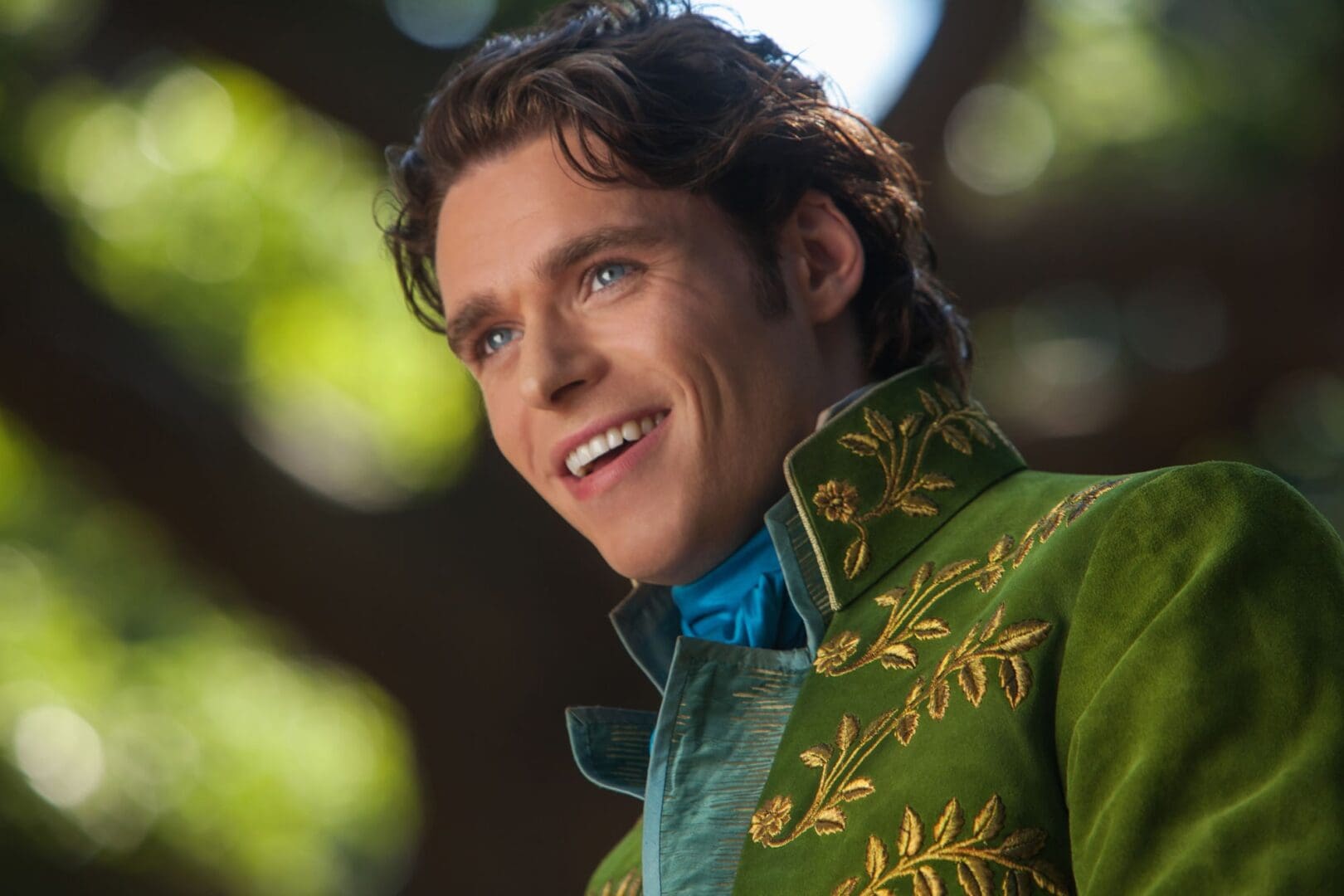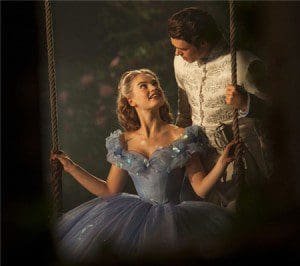[…] post Cinderella, Prince Charming, and True Gentlemanliness appeared first on The Catholic […]
A blog for Catholic men that seeks to encourage virtue, the pursuit of holiness and the art of true masculinity.
Cinderella, Prince Charming, and True Gentlemanliness

My wife and I enjoy periodic date nights, and for our most recent night on the town, I took her to see Disney’s new production, Cinderella. To be honest, I was a bit leery as Disney has ruined a good deal of movies lately with post-modern deconstruction (Maleficent paints the evil witch in Sleeping Beauty as a sympathetic, complicated, pseudo-satanic character). What would they do to this classical tale of good and evil? I wondered.
I am happy to say that despite my apprehensions, Cinderella was a pleasant surprise and one of the best Disney movies I have seen in a long time. The film was completely faithful to the original story, with zero cynicism or liberties taken. Most importantly, it joyfully presents goodness, kindness, and forgiveness triumphing over the evils of jealousy and hatred in the best possible way. It was truly a good movie in the fullest sense of the word, presenting a right-side-up Christian worldview from start to finish. For Disney, this was very much a surprise!
My point here is not to review Cinderella, however—others have done a fine job of that already. What I do want to focus on is how the film portrayed one of the most important characters, the Prince (known in the original animated film as Prince Charming).
It is common for Hollywood to portray men as either bumbling buffoons in need of rescuing or as rebellious bad boys in need of reforming, and story lines often focus on the wise and adroit women who swoop in to save their men. Cinderella is quite different in this respect. The Prince, played by Richard Madden, is presented as kind, noble, and above all humble. He is not a clown, nor is he an arrogant fop. He is truly a good and courteous man. He is a gentleman.
Here are some of the ways the Prince exemplifies true gentlemanliness. Warning: There are spoilers ahead.
Humility
We are introduced to the Prince as he is hunting a stag in the woods. Cinderella, distraught over her mistreatment by her stepmother, has just run away from home. The two meet in the forest and Prince charming is immediately captivated, as much by Cinderella’s kindness and innocence as by her beauty.
 Interestingly, Cinderella does not realize that the Prince is royalty. She has no idea who he is, a fact which the Prince finds amusing and endearing. Rather than impress her with his status, however, he simply introduces himself as “Kit,” a nickname given to him by his father, and says he is merely an apprentice. Unfortunately for him, Cinderella disappears before he can even learn her name.
Interestingly, Cinderella does not realize that the Prince is royalty. She has no idea who he is, a fact which the Prince finds amusing and endearing. Rather than impress her with his status, however, he simply introduces himself as “Kit,” a nickname given to him by his father, and says he is merely an apprentice. Unfortunately for him, Cinderella disappears before he can even learn her name.
Later in the film, the Prince finds Cinderella after a long and thorough search. Cinderella graciously reveals to the prince that she is not indeed a princess, that she has no kingdom and no family. Undeterred, the Prince offers marriage, and Cinderella agrees on the condition that he take her as she is, a poor country girl. The Prince agrees without hesitation, and then adds, “And only if you will take me as I am, an apprentice still learning his trade.” There is no arrogance here, only genuine courtesy and humility.
The Prince’s humble opinion of himself is quite out of character for movie men. The appeal of Christian Grey in the recent 50 Shades of Grey film, which I have not seen and will not see, is based exclusively on his power and wealth. As one commentator noted, an obese man of average means who behaved the same way would end up in prison, not glamorized in a novel. Christian is a horrible, abusive person who is defined by his pride and lust for control— and yet he is attractive to the main character because of these things, not in spite of them. The Prince presents an entirely different picture. Cinderella, unlike the Prince’s other suitors, is not attracted to him because he is rich or powerful or needy in some way, but because he is good and kind. And in turn, those are the very reasons the Prince is attracted to Cinderella.
Relationship to his Father
It is extremely rare to see a film that portrays a character who has a good relationship with his father. Fathers are almost always portrayed as domineering and cold, forcing their sons to surrender a happy life for the father’s predetermined plans. In fact, one of the more common themes in romance movies is the love-stricken son rebelliously rejecting his controlling father in favor of his bride. The message is that dads are out of touch, unfeeling, and controlling, and that good sons are the ones who teach their fathers a lesson.

Again, the Prince in Cinderella shatters this stereotype. From the beginning of the movie, he is shown enjoying a loving and respectful relationship with his father. Far from pursuing his relationship with Cinderella behind his back, he immediately confides in his father about his love for the mysterious girl in the forest, demonstrating that they have a relationship built on trust and mutual respect rather than fear and resentment. He also consults with his father throughout the film before making decisions, a sign that he, an apprentice, as he considers himself, desires to learn from his father’s wisdom and experience.
Of course, the Prince is ultimately caught between his love for Cinderella and his desire to please his father and to do what is best for the kingdom. Yet, happily, this tension is not resolved in a heated exchange of bitter words, but rather one in which the prince receives his father’s blessing to marry the woman he loves.
A True Gentleman
I could go on, highlighting the Prince’s noble character, but the best thing is for you to see the film for yourself—with your wife or significant other of course!
I will conclude by saying that the Prince in this story is a very human image of something higher and truer—the fairytale love story between Christ and the Church. Jesus Christ is the true royal Prince, the Prince of Peace, inheriting his Father’s kingdom. He is the real gentlemanly bridegroom, relentlessly pursuing, wooing and wedding his poor bride, the Church. As men, we would do well to learn of him.
Don’t Miss a Thing
Subscribe to get email notifications of new posts and special offers PLUS a St. Joseph digital poster.
Related
COMMENTS
Reader Interactions
Comments
Trackbacks
-
-
[…] lessons in this film are not geared only toward girls, as the Catholic Gentleman points out, but “Prince Charming” has a lot to teach our young men about what it means to be good […]
-
[…] via The Catholic Gentleman. […]
-
[…] Guzman is the founder and editor of the Catholic Gentleman where this article was originally published. It is reprinted here with permission. […]
-
[…] Guzman is the founder and editor of the Catholic Gentleman where this article was originally published. It is reprinted here with permission. […]
I was so happy to have a good film to attend with my 15 and 14 year old daughters- I heartily agree with this post!
I would like to start by saying I mean no disrespect but I would like to know how you could just so blatantly disrespect such a finominally produced movie like Maleficent? I know that everyone is entitled to their own opinions but this movie was simply good movie, it was well directed, well acted, well proucued, the costuming and makeup was beyond amazing. Being a huge performing arts nerd, movies that are well rounded like this one should not be disrespected in such a way, would you blatantly hate on a well done production of Shakespeare’s King Leer, or Noel Coward’s Blithe Spirit?
I LOVED this movie. Went to see if with my husband on the 7th anniversary of our first date. I too was very impressed with the portrayal of the prince and his father. Disney hit the ball out of the park on this one!
Very well written review! This was indeed my favorite version of the story. I didn’t really come up with the idea of him being ‘humble’, but I totally agree. And I did think if there was one man in the real world who would be like the perfect man in this fairytale, it should be Christ.